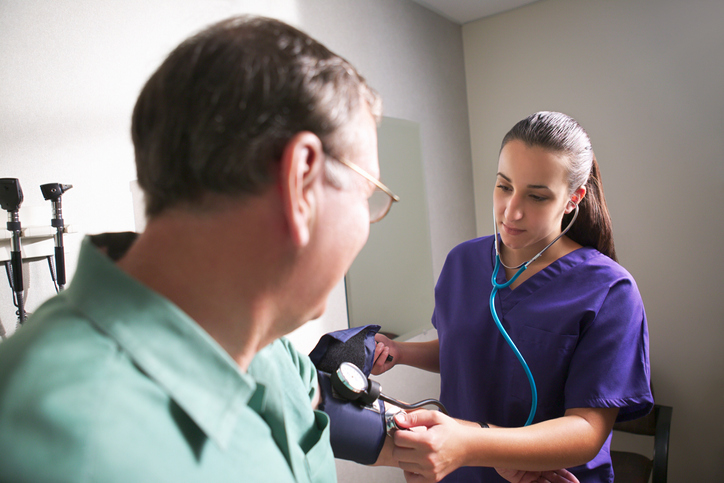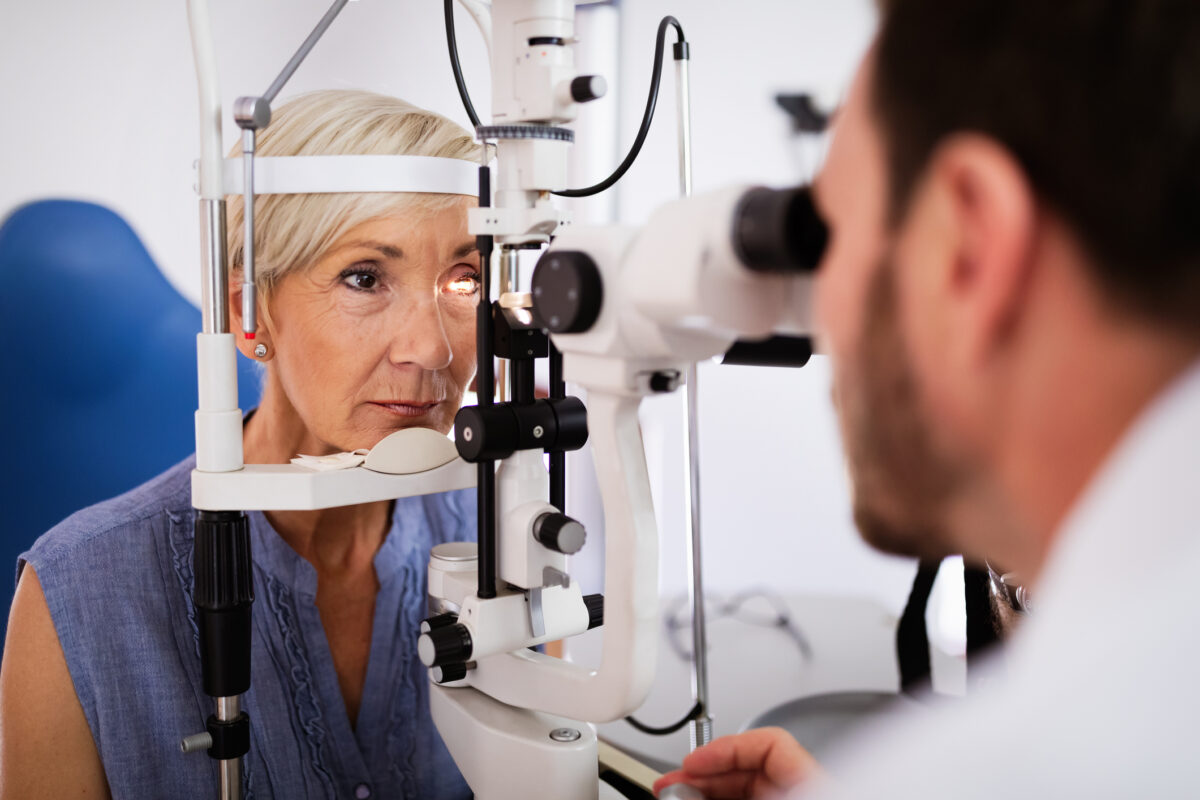Author Jim Rohn once said, “Take care of your body. It’s the only place you have to live.” And then there are the timeless words of Virgil: “The greatest wealth is health.” So, to protect that lifelong investment—your “living home”—you’ll want to get familiar with the tests, screenings and appointments you should schedule on a regular basis.
First Thing’s First: Find a Doctor You Trust
Your doctor is a valuable partner in your lifelong wellness journey. Developing good rapport with your provider is essential to staying ahead of future health problems, managing any current conditions and promoting wellness by encouraging a healthy lifestyle. And establishing a baseline through regular blood tests and blood pressure checks is vital in identifying problems like high cholesterol, high blood sugar or high blood pressure early on.
But what preventive screenings should you complete and when? MedlinePlus, a resource hub managed by the NIH National Library of Medicine, offers a comprehensive screening guide for men 65 and older. The Office of Disease Prevention and Health Promotion (ODPHP) also offers a practical free tool—MyHealthFinder—that gives personalized recommendations for screenings and appointments based on your age.
Here are their recommendations:
Abdominal Aortic Aneurysm Screening
An abdominal aortic aneurysm occurs when the lower part of the aorta (the body’s major blood supply vessel which runs from the heart to the abdomen) becomes enlarged and could potentially rupture. An ultrasound is the best way to screen for this condition, which is especially critical for men between the ages of 65 to 75 who were or are smokers.
Blood Pressure Screening
At least once a year is the standard for men who are relatively healthy, but if you have diabetes, kidney problems, heart disease or certain other conditions (your PCP can advise on what may be included in this category), it’s important to get your blood pressure checked more frequently. Sometimes your local pharmacy or grocery store may have an automated machine where you can check your blood pressure yourself. Check with your doctor about coming in to have it checked there too.

Cholesterol Screening and Heart Disease Prevention
For men with normal cholesterol levels, the best practice is to recheck it at least every five years. You should check your levels more frequently if you have high cholesterol, or have diabetes, kidney problems or heart disease.
Cancer Screenings
Colorectal
The American Cancer Society recommends screening for this type of cancer starting at age 45 and until the age of 75 (those over 75 should check with their doctor to determine if they still need it). There are several ways to test for colorectal cancer, such as colonoscopies, sigmoidoscopies and various types of stool tests.
Lung
An annual screening via low-dose computed tomography (LDCT) for lung cancer is highly recommended if you:
- Are between the ages of 50 and 80
- Are currently a smoker
- Have quit within the last 15 years
- Have a history of smoking for up to 20 years
Prostate
Men between the ages of 55 and 69 should discuss the pros and cons of a PSA test for prostate cancer and determine if the benefits of this preventive screening outweigh the associated risks. According to MedlinePlus, physical exams for prostate cancer are not necessary for men who have no symptoms of the disease. However, if you’re noticing any changes or problems like an increased need to urinate, an enlarged prostate or bacterial infections, talk to your doctor about these symptoms, as they could indicate the need for further examination.
Skin
As a best practice for early detection, the Skin Cancer Foundation recommends seeing a dermatologist once a year. Your doctor should also check your skin regularly for signs of cancer, especially if you have a family history of it or are high risk. Do self-exams as well and let your PCP know if you notice any changes in your skin.
Dental Health
As you age, you may be at higher risk of dental issues like tooth decay or loss, gum disease, or challenges related to xerostomia (dry mouth)—a common condition that may be aggravated by diabetes or certain medications. Once or twice a year, visit your dentist for a cleaning and exam. Keep in touch with your dentist about things like bad breath or soreness and cracks in/around your mouth, which may indicate other health concerns.
Diabetes Screening
Those in good health should be screened every three years for diabetes. If you’re overweight or at risk for diabetes due to other factors, have a conversation with your doctor about the need for more frequent screenings.
Vision and Hearing Tests
If you have diabetes, you should have an eye exam at least once a year. Otherwise, every one to two years is recommended for eye exams. Hearing tests are not necessary unless you are experiencing symptoms that suggest you may have, or are at risk for, hearing loss.
Immunizations and Infectious Diseases
A yearly flu shot is recommended across the board. A tetanus-diphtheria booster is recommended every 10 years. Men 65 and up should get a pneumococcal vaccine, per the CDC, to prevent infections of the lungs like pneumonia or other illnesses caused by pneumococcal bacteria. Your doctor may also suggest getting the shingles, or herpes zoster, vaccine.
In terms of infectious diseases, the U.S. Preventive Services Task Force suggests screening for hepatitis C and based on your medical history or certain lifestyle factors, screening for sexually transmitted diseases like syphilis, chlamydia, HIV or other related infections.
Osteoporosis Screening
Men over 70 should check with their doctor about having bone mineral density testing. Men who have a family history of osteoporosis or other risk factors should talk to their providers about regular screening. Risk factors for osteoporosis include:
- Low body weight
- Smoking
- Heavy alcohol use
- A bone fracture after the age of 50
- Long-term steroid use
Protecting Your Health for a Lifetime
Ultimately, that connection with your primary care physician is the best way to stay on top of screenings and manage your lifelong health. These MedlinePlus and ODPHP guidelines are certainly valuable, but even more so is the advice you’ll receive from your PCP during your annual physical exams and continued communication between visits.
From depression and fall prevention to substance abuse challenges, medication interactions and everything in between, make it a habit and a priority to schedule that annual appointment. Your future healthy—and therefore, wealthy—self will thank you, and so will your loved ones.







Great tips for men’s health, my husband loved them, and will follow your directions. He just got his lab work back, and he’s in great health at 74, but still need to check other issues with his doctor. Thanks for the Excellent Tips.
What about a wellness checklist for women over 50?
I love these reminders. The more I hear it I finally do it.
Excellent resource
A Covid shot and booster would be something to add when seeing the doctor.
Thank you very much for the refreshing information. It is always good to have a check list to review, as we age and when going to the doctor for medical reasons. I have learned personally, how aging can play on our brain and memory (keeping it simple), that is why I use a checklist.